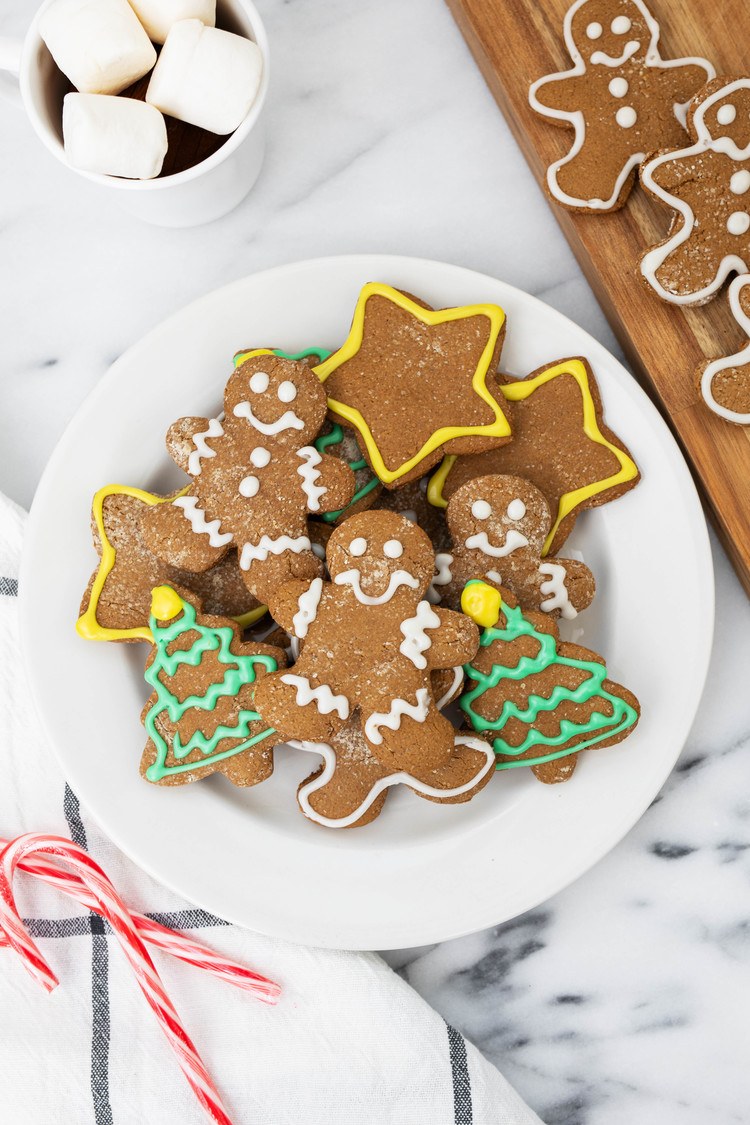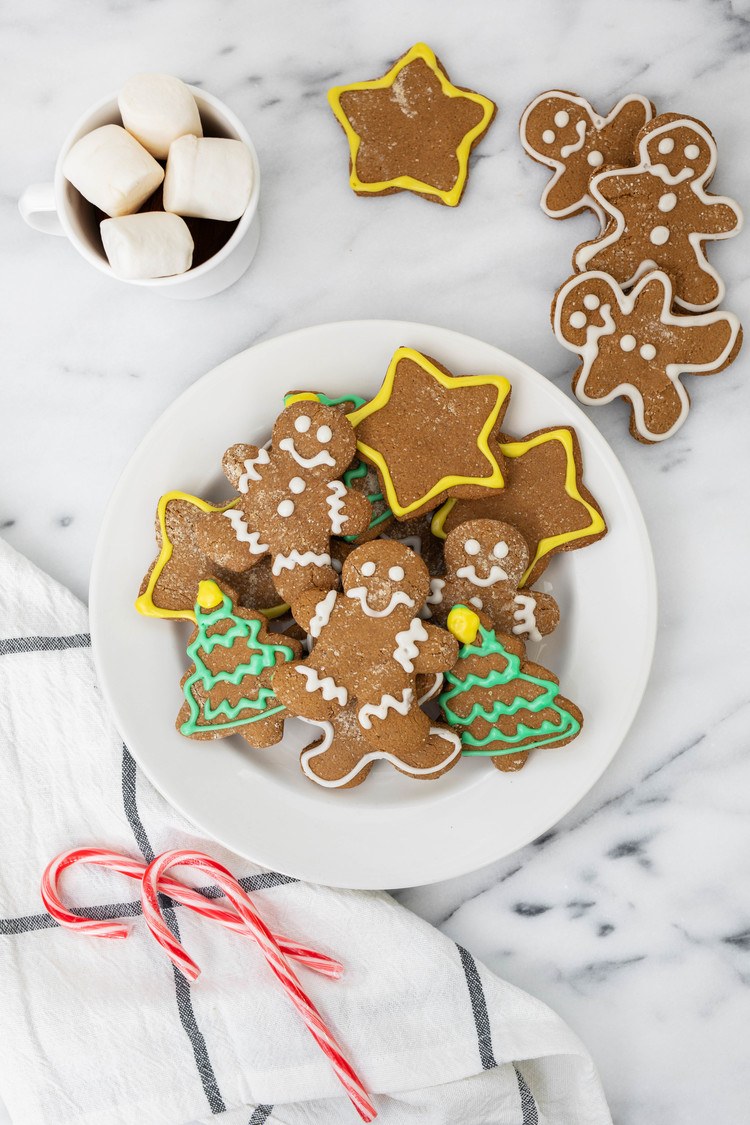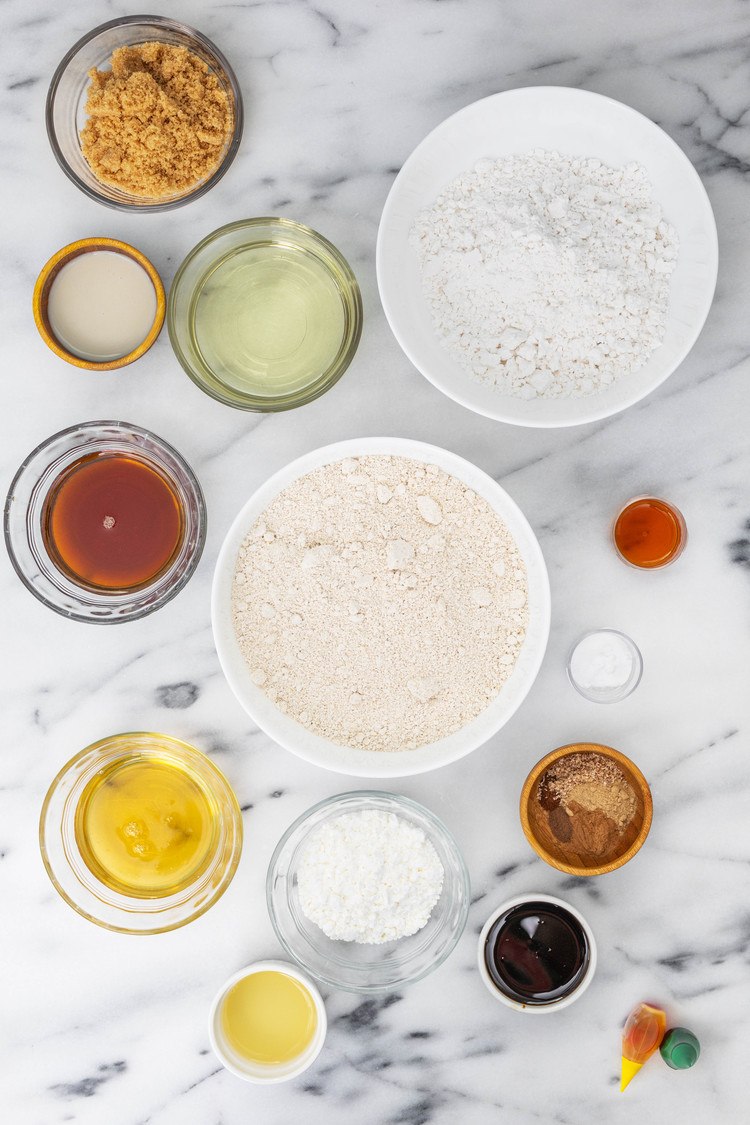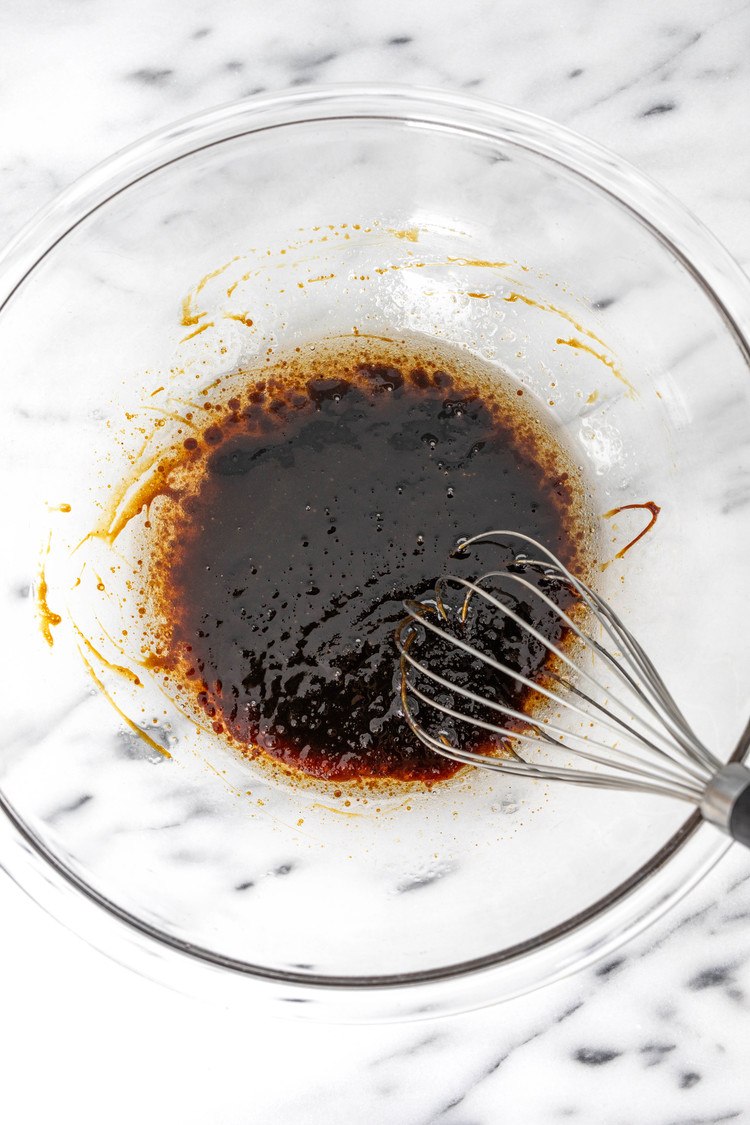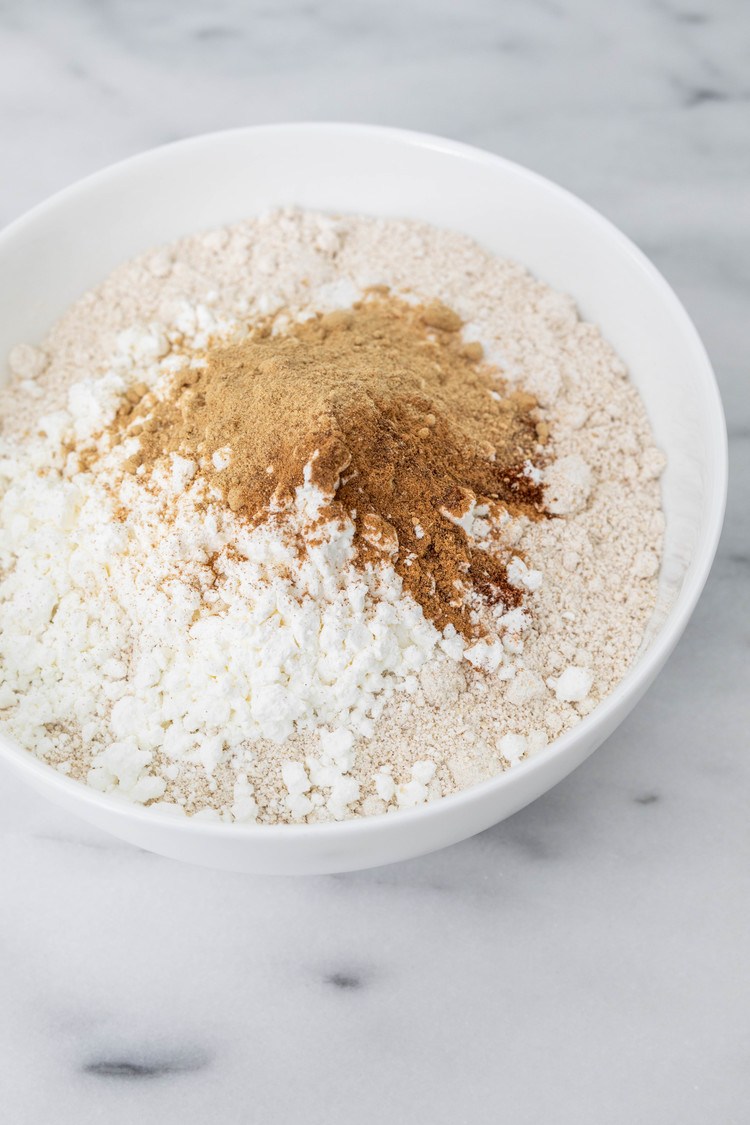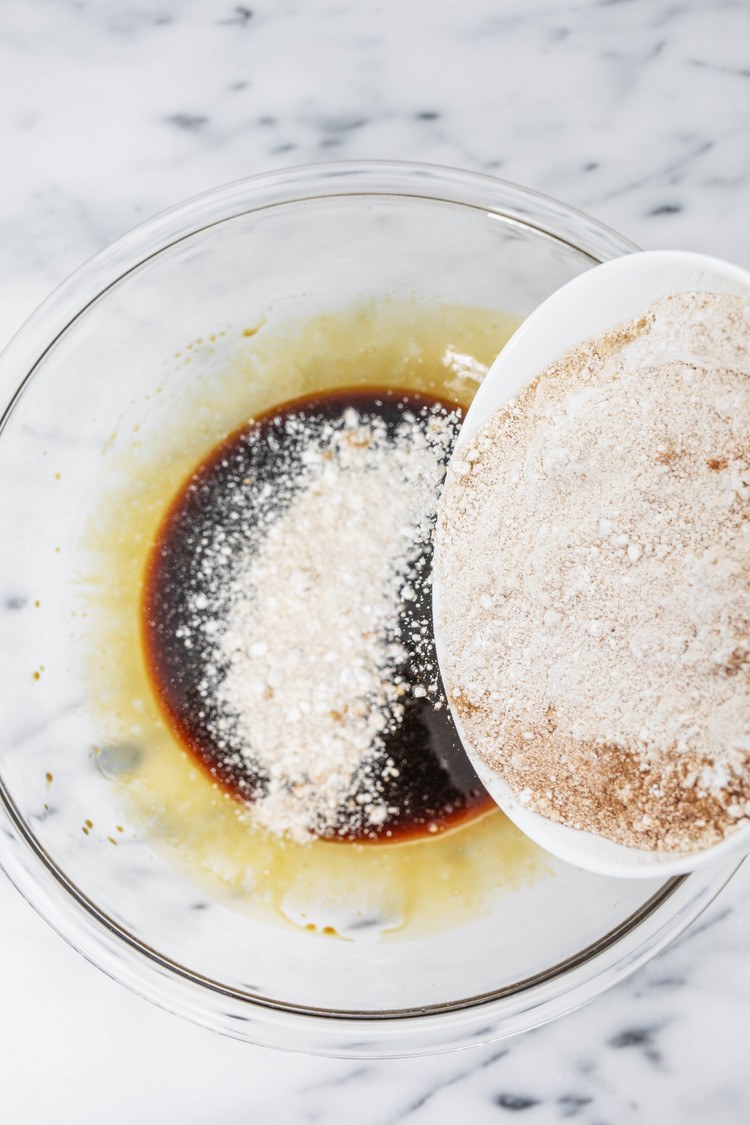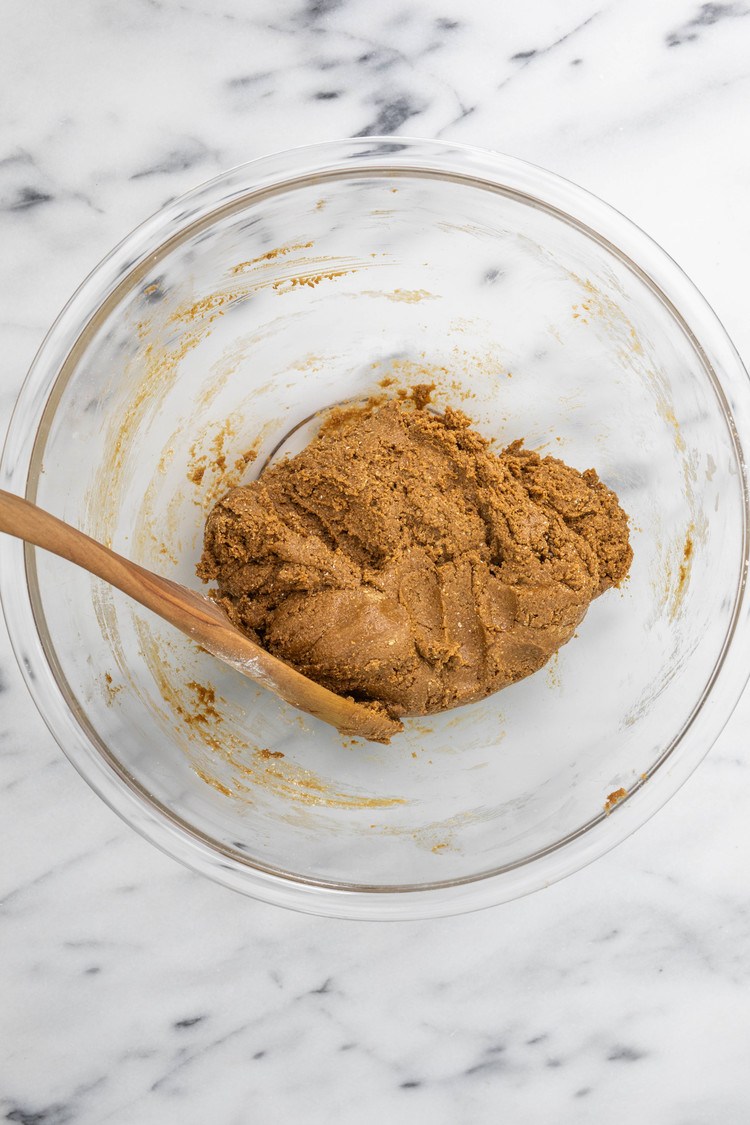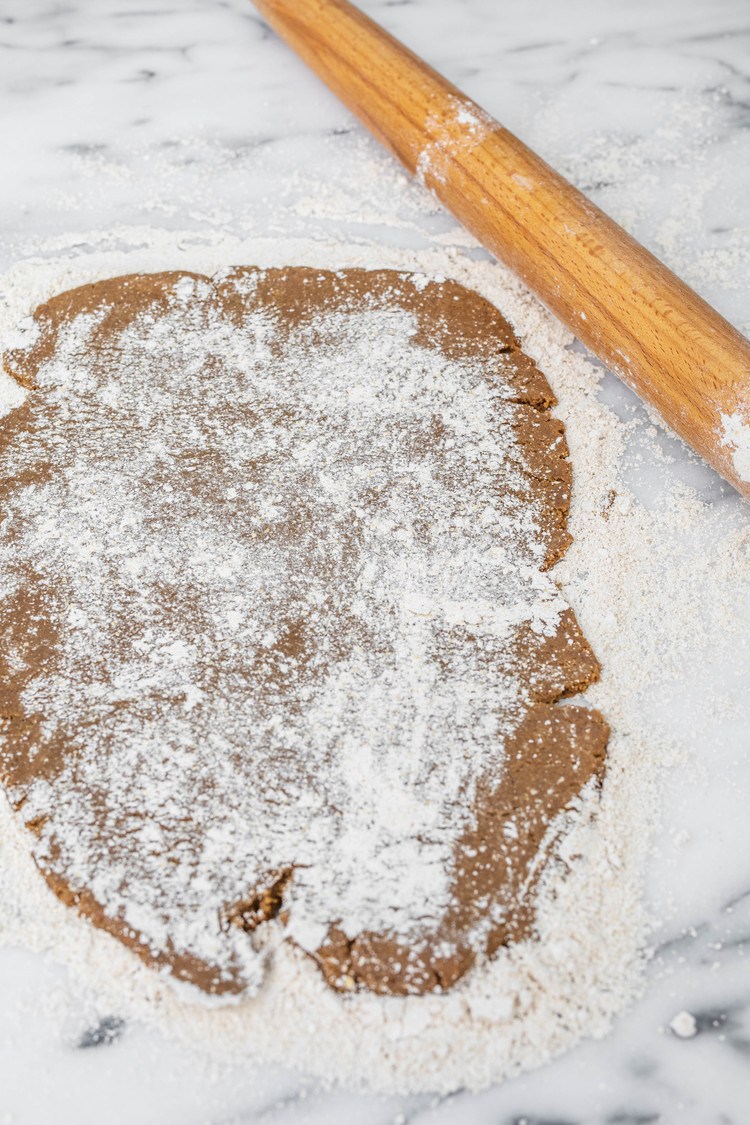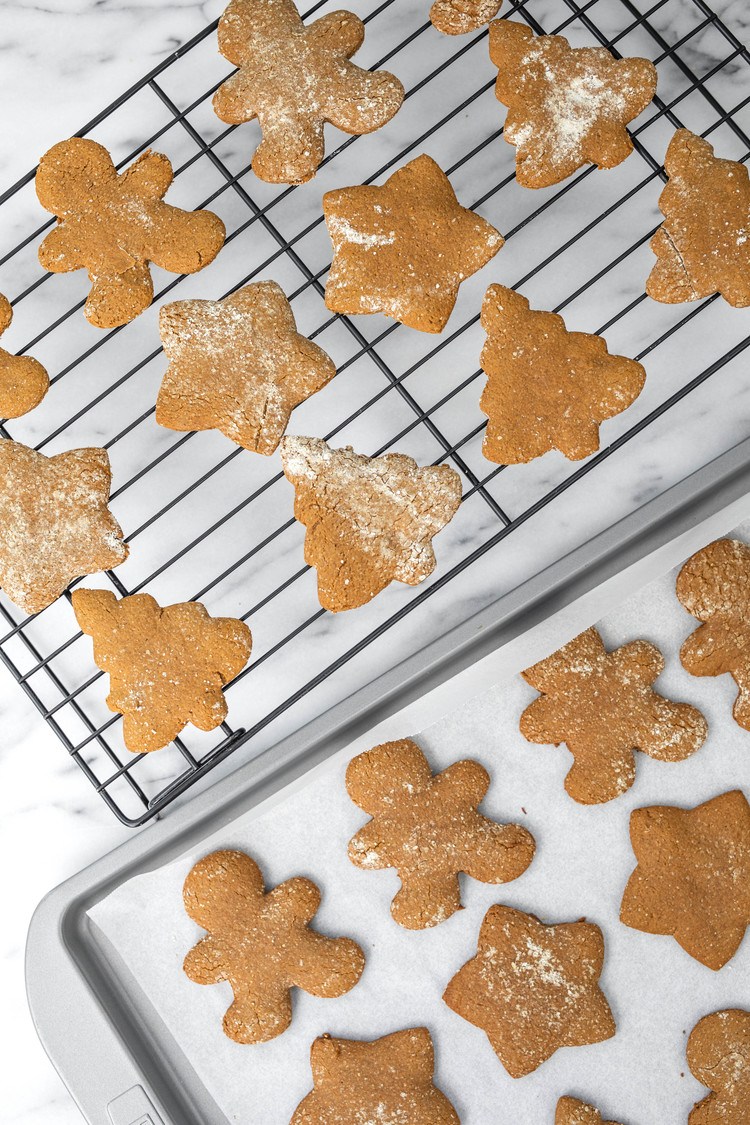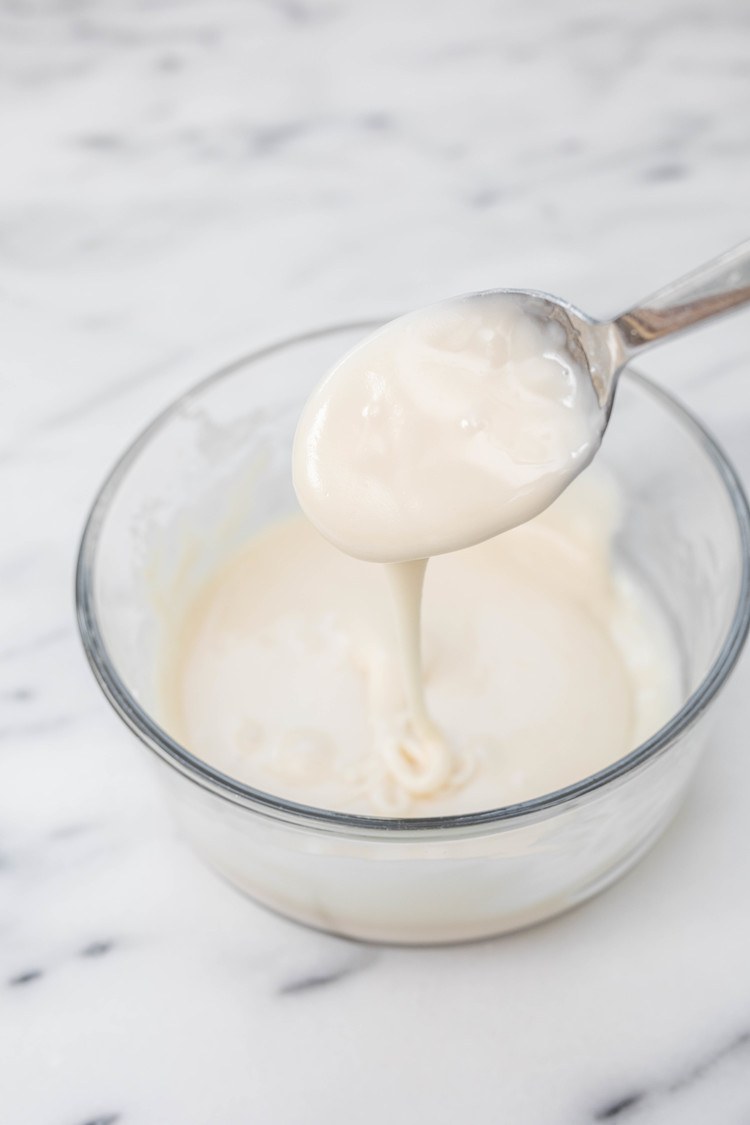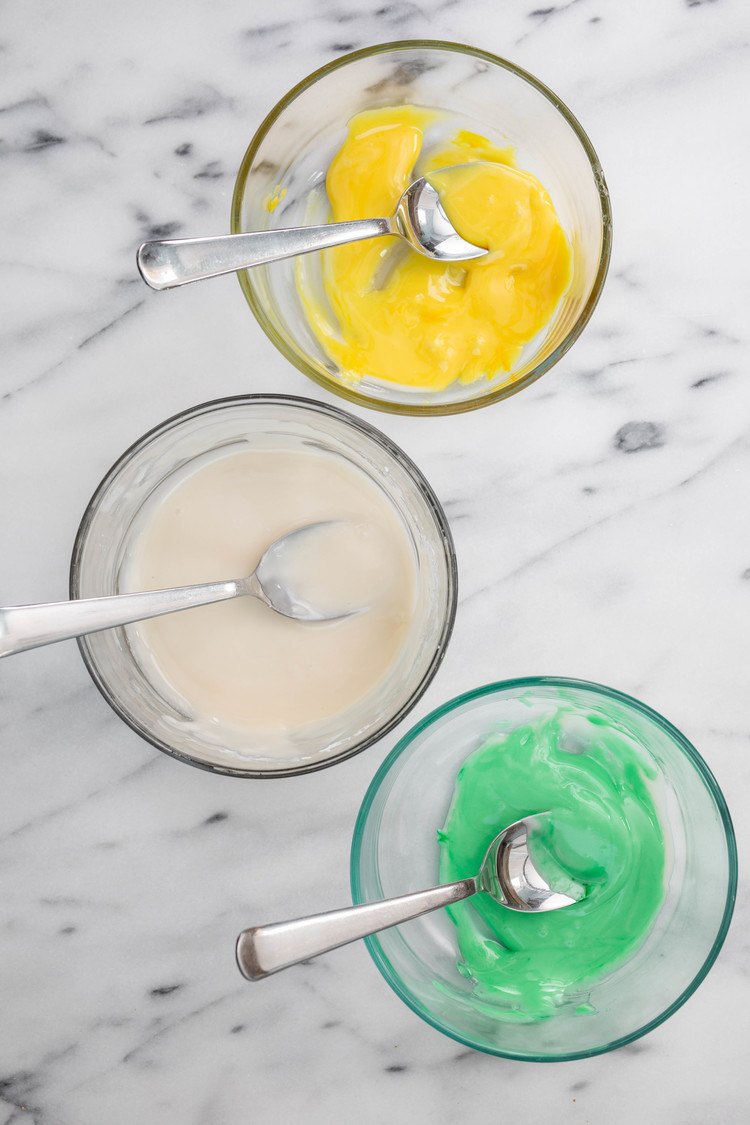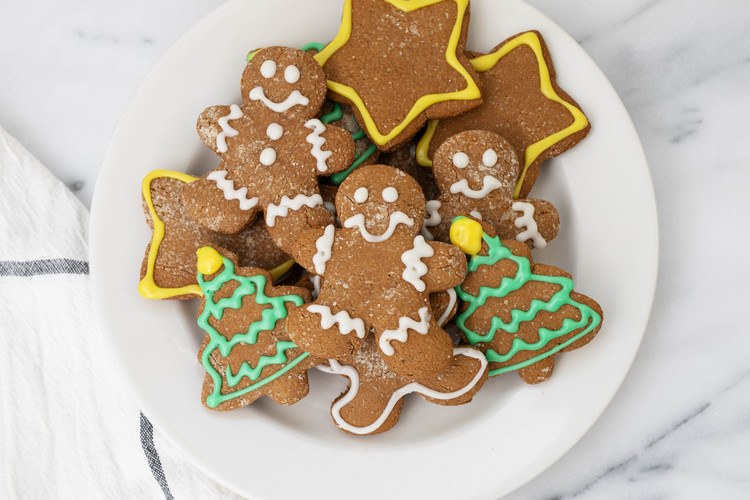Vegan Gingerbread Cookies (with oat flour)
These gluten-free vegan gingerbread cookies are prepared with oat flour and healthier ingredients, making them suitable for everyone around the Christmas dinner table.
For more tasty vegan holiday recipes, check out our Christmas cookies, Christmas dinner, Christmas desserts and Christmas breakfast recipe roundups.
Vegan Gingerbread Cookies with Oat Flour
Going vegan or gluten free doesn’t mean giving up Christmas cookies! Homemade (or store bought) oat flour replaces all-purpose flour in this sweet, chewy, and perfectly-spiced cookie that’s ready to be decorated with colored icing and sprinkles.
Gingerbread flavor comes from a mix of dark molasses, sweetener, and a spice blend that includes ginger, cinnamon, nutmeg, cloves, and allspice. Different amounts of each spice, or omitting or including different spices creates slight variations in flavor, but ginger is always front and center!
These cookies are made with 100% oat flour, which can be purchased premade or homemade. Oat flour is simply ground oats so all you need to make oat flour is oats and a food processor or high-speed blender. Store bought oat flour is typically finer in texture so it’s best for when you need a light, fine flour, but a high speed blender will yield a similar texture.
These vegan gingerbread cookies have a wonderful toothsome texture that complements the spicy flavors and touch of molasses. While the icing calls for refined powdered sugar, the cookie itself is made with no refined sugars, instead calling for coconut sugar, agave, and molasses. If you’re avoiding refined sugars, simply leave off the icing or use an alternative icing.
Ingredients for Vegan Gingerbread Cookies
These cookies are made with baking pantry staples. You can even make your own oat flour!
How to make Vegan Oat Gingerbread Cutout Cookies
Step 1:
Combine vegetable oil, coconut sugar, agave nectar, molasses, aquafaba, and oat milk in a large mixing bowl and stir until mixed.
Step 2:
Mix together oat flour, cornstarch, baking soda, salt, ginger, cinnamon, nutmeg, cloves, and allspice in a small bowl.
Step 3:
Gradually add the dry mixture to the mixing bowl, stirring to combine until a dough forms. If the dough is crumbly, add more oat milk until it holds together. If it’s too gooey, add more oat flour.
Step 4:
Collect the dough in a ball, wrap up, and refrigerate for at least 4 hours, or overnight.
Step 5:
Preheat the oven to 350°.
Step 6:
Divide dough into two pieces. Sprinkle oat flour on a clean surface and roll out a portion of dough ¼” thick.
Step 7:
Cut out cookies with cookie cutters of your choosing, then transfer cutouts to a prepared baking sheet.
Step 8:
Collect dough scraps into a ball, roll out again and cut out more cookies, sprinkling more oat flour if the dough begins to stick. Discard remaining dough scraps.
Step 9:
Repeat with the second half of the dough, or save to bake another day.
Step 10:
Bake cookies for 10-12 minutes until firm. Let sit on the cookie sheet to help firm up before transferring to a cooling rack to finish cooling. Dust off excess oat flour.
Step 11:
Meanwhile, prepare the glaze. Combine powdered sugar, agave, vanilla, and 2-3 teaspoons of water and stir. Continue adding water until a thick glossy texture is achieved. The glaze should drizzle but hold its shape for a few seconds in the bowl. Add more water or powdered sugar as needed.
Step 12:
If you’d like to color the glaze, divide the prepared glaze into small bowls and add natural food coloring until desired color is achieved.
Step 13:
Drizzle or pipe the glaze onto cooled cookies. Let the glaze dry for 2-3 hours before storing the cookies.
How to make oat flour?
To make your own oat flour, simply pulse oats in a food processor or high-speed blender until a fine, powdery texture is achieved.
A food processor will yield a grittier texture while a high-speed blender will create a fine, lightweight flour. For this recipe, either option will work.
Vegan Gingerbread Cookies FAQ
Oat flour can replace all-purpose flour 1:1, but it will create a denser, chewier texture so it’s best used in recipes like cookies, bars, and whole grain breads. Try a different flour for cakes, muffins, and pancakes, or try a blend of oat flour and all-purpose flour, wheat or gluten free.
Yes, vegans can eat gingerbread as long as the recipe is prepared without eggs and with oil or margarine instead of butter. Most homemade gingerbread cookies are not vegan, but many store bought ginger cookies are accidentally vegan—just be sure to check the ingredients.
Oats are a healthy, fiber-rich whole grain. Including them in your diet can help with weight loss, blood sugar regulation, and cholesterol management.


Servings: 24 cookies
Cookies
- ½ cup vegetable oil
- ⅓ cup coconut sugar
- ½ cup agave nectar
- 3 tablespoons molasses
- 2 tablespoons aquafaba
- 1 tablespoon oat milk
- 3-3 ½ cups oat flour
- ½ cup cornstarch or tapioca starch
- ½ teaspoon baking soda
- ¼ teaspoon salt
- 1 teaspoon powdered ginger
- ½ teaspoon cinnamon
- ¼ teaspoon nutmeg
- ⅛ teaspoon ground cloves
- ⅛ teaspoon allspice
Icing
- 2 cups powdered sugar
- 2 teaspoons agave nectar
- 1 teaspoon vanilla extract
- 5-6 teaspoons water or plant milk
- Natural food coloring
-
Combine vegetable oil, coconut sugar, agave nectar, molasses, aquafaba, and oat milk in a large mixing bowl and stir until mixed.
-
Mix together oat flour, cornstarch, baking soda, salt, ginger, cinnamon, nutmeg, cloves, and allspice in a small bowl.
-
Gradually add the dry mixture to the mixing bowl, stirring to combine until a dough forms. If the dough is crumbly, add more oat milk until it holds together. If it’s too gooey, add more oat flour.
-
Collect the dough in a ball, wrap up, and refrigerate for at least 4 hours, or overnight.
-
Preheat the oven to 350°.
-
Divide dough into two pieces. Sprinkle oat flour on a clean surface and roll out a portion of dough ¼” thick.
-
Cut out cookies with cookie cutters of your choosing, then transfer cutouts to a prepared baking sheet.
-
Collect dough scraps into a ball, roll out again and cut out more cookies, sprinkling more oat flour if the dough begins to stick. Discard remaining dough scraps.
-
Repeat with the second half of the dough, or save to bake another day.
-
Bake cookies for 10-12 minutes until firm. Let sit on the cookie sheet to help firm up before transferring to a cooling rack to finish cooling. Dust off excess oat flour.
-
Meanwhile, prepare the glaze. Combine powdered sugar, agave, vanilla, and 2-3 teaspoons of water and stir. Continue adding water until a thick glossy texture is achieved. The glaze should drizzle but hold its shape for a few seconds in the bowl. Add more water or powdered sugar as needed.
-
If you’d like to color the glaze, divide the prepared glaze into small bowls and add natural food coloring until desired color is achieved.
-
Drizzle or pipe the glaze onto cooled cookies. Let the glaze dry for 2-3 hours before storing the cookies.
- Oat flour is great for gingerbread cookies because it lends a chewy texture to the cookies while still puffing up in the oven. Be sure to use a fine oat flour, either store bought or homemade in a high speed blender so it’s not too gritty.
- You can freeze half or all of the cookie dough instead of refrigerating if you would like to bake the cookies another time. The dough will keep in the freezer for up to 3 months.

